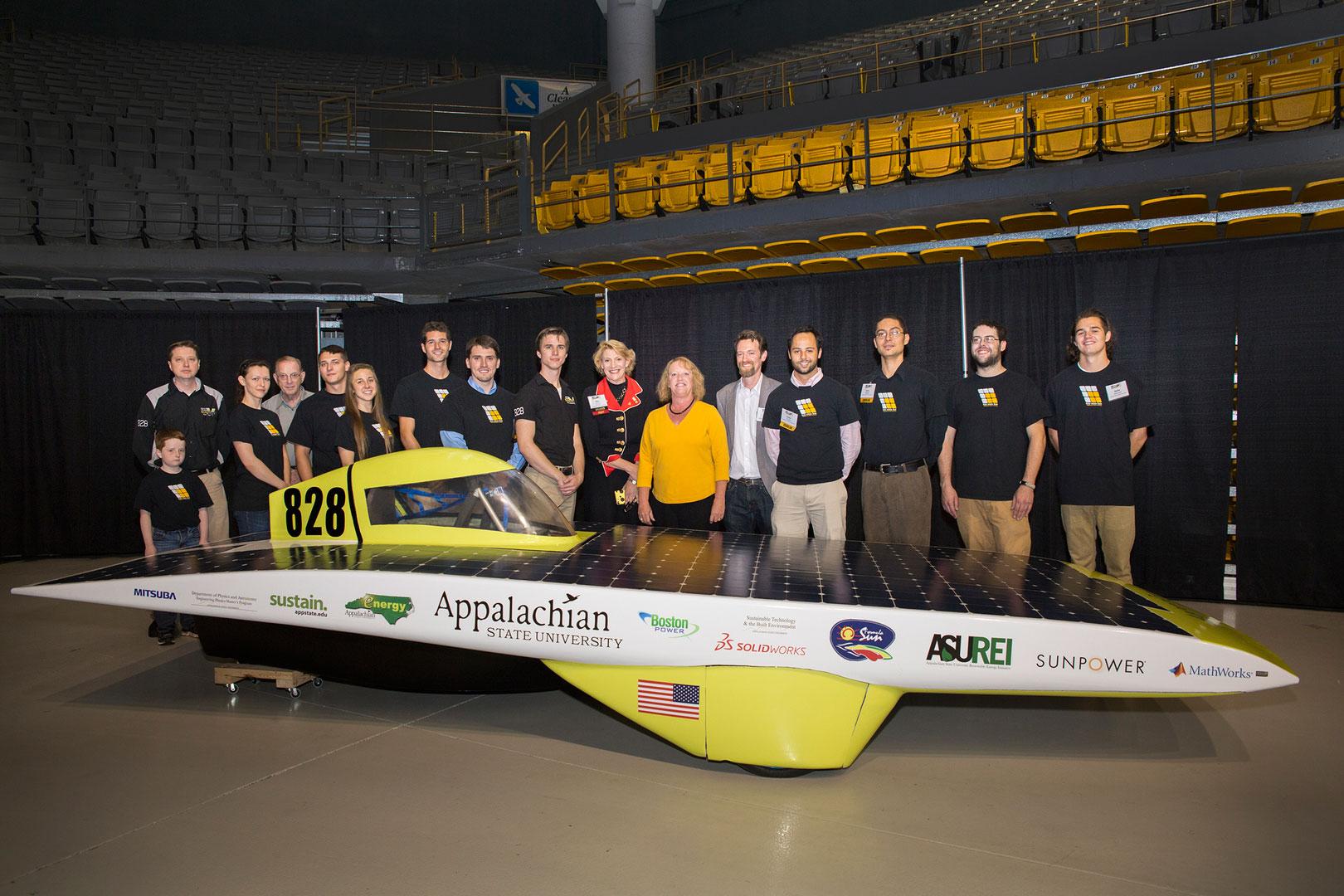Appalachian State University’s Solar Vehicle Team never had it easy, but that hasn’t stopped them from pulling through.
In March, a group of Appalachian State students attended a conference on sustainable transportation in Michigan. At the end of the event, they were approached by members of the solar vehicle team at Iowa State University, “PrISUm,” who offered to give them a hull of a car in order to build their own solar-powered car.
The Appalachian students accepted and vowed to compete in the Formula Sun Grand Prix, which is a part of the American Solar Challenge, a collegiate competition where schools design, build, and drive solar powered cars.
The event was held in Austin, Texas from July 28-31.
Unfortunately, the hull didn’t arrive until the beginning of June. With approximately five and a half weeks until the competition, the Appalachian State team was far behind schedule.
“It usually takes most teams two years to build their car,” said Bailey Winecoff, a senior appropriate technology major.
Daniel Blakeley, a graduate technology student and team leader, said the group worked tirelessly in the weeks leading up to the competition to build the vehicle.
“The average team member was spending 12-15 hours on the car per day,” Blakeley said. “When designing the suspension components, there was three days in a row where I’d wake up at 7 a.m., work on it a little bit in the morning have some classes, and then go back to working on it until going to bed at 3 or 4 a.m. There were other nights, when we were building the battery pack, where we were up through the night and we didn’t even leave campus.”
Through persistence, the team managed to have the car close to finished by the time the competition rolled around, and the tournament allowed teams to work on their cars at the competition.
“When we got there we had the suspension on it, we had the motor in it, we had the motor controller in it, but the finishing wires, lights and switches and the power regulation board were still being worked on,” Blakeley said.
Unfortunately, that’s when the team hit another roadblock.
The team’s insurance paperwork didn’t go through until the final day of the event. As a result, they weren’t able to work in a garage, but instead had to finish their car outdoors in the heat.
“It was 100-plus degrees every day, and the asphalt was 135 degrees,” Blakeley said. “We were only allowed to work on our car from 7 a.m. to 11 p.m. And since we couldn’t work in a garage, we had to unload everything from our trailer each morning, and then break it down each night and put it back.”
Blakeley said he believes that if the team had access to the garages, they would have finished the car much sooner.
Unfortunately, the team didn’t finish the car in time to have it compete in the racing portion of the competition, but Blakeley said the fact that they finished the car is a big achievement.
“All the other schools we talked to were floored,” Blakeley. “They said, ‘There’s no way we could have done that in six weeks.’”
At the end of the tournament, Appalachian State was awarded the perseverance award.
“All the other teams, to show their appreciation for what we did, gave us a standing ovation and were chanting, ‘App State! App State!’” Winecoff said. “It gave me goosebumps to feel the energy in the room and know that everyone there recognized the hard work that we put in.”
Appalachian was the only university without an engineering school that participated.
“We were competing against these big engineering schools like UC Berkeley, MIT, Northwestern, and Iowa State,” Blakeley said.
Appalachian is the first school in North Carolina to ever field a solar vehicle team. It’s also one of only four on the East Coast. The other three are MIT, the University of Kentucky, and Georgia Tech.
Appalachian State’s Solar Vehicle Team will compete in the American Solar Challenge in July 2016. The location and specific dates of the competition have yet to be determined, however.
“What I took away from this competition is to keep working, and don’t give up,” Blakeley said. “The only way to absolutely fail at something is to give up on it.”
Story by: Tommy Culkin, Senior News Reporter

